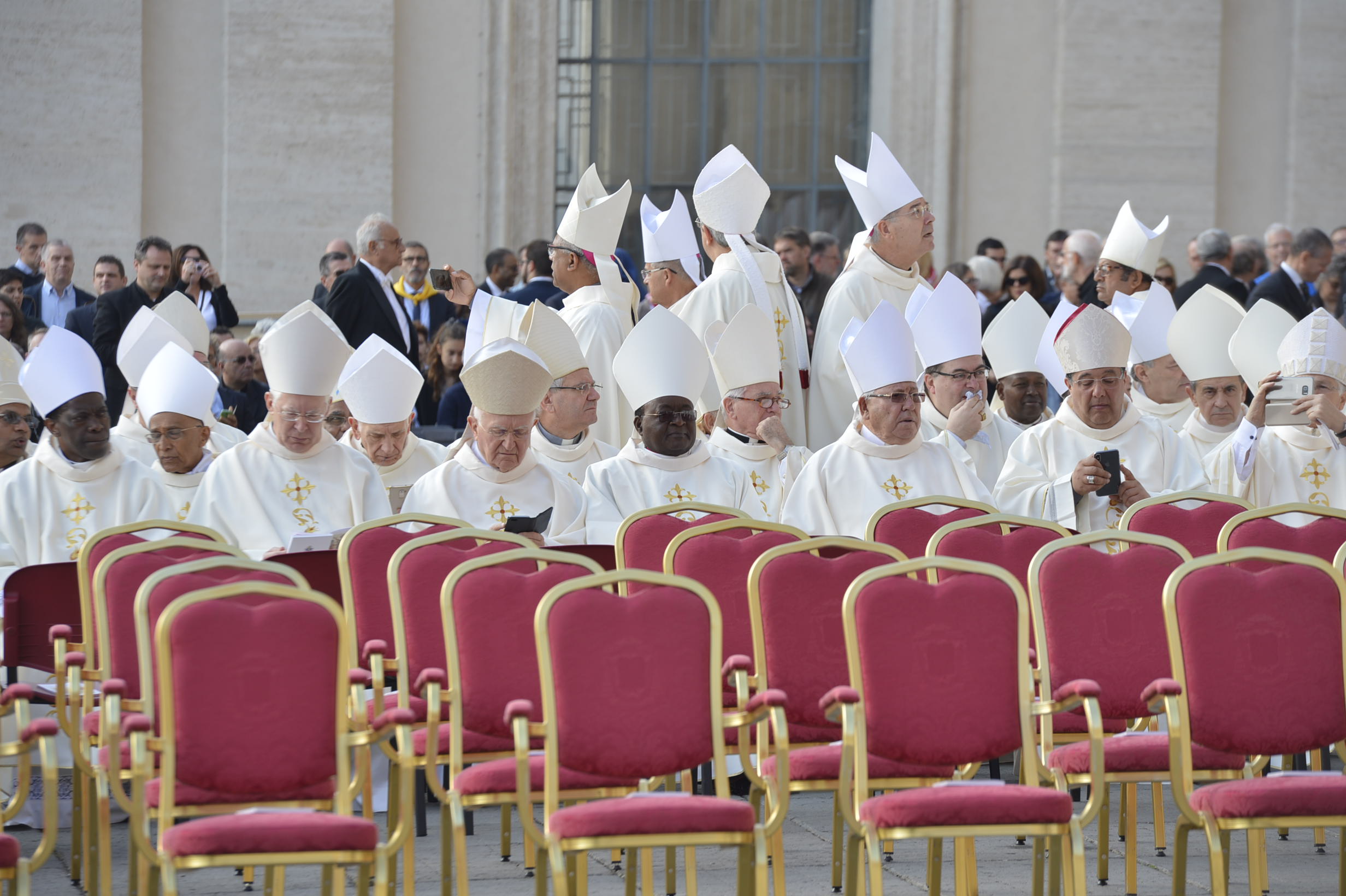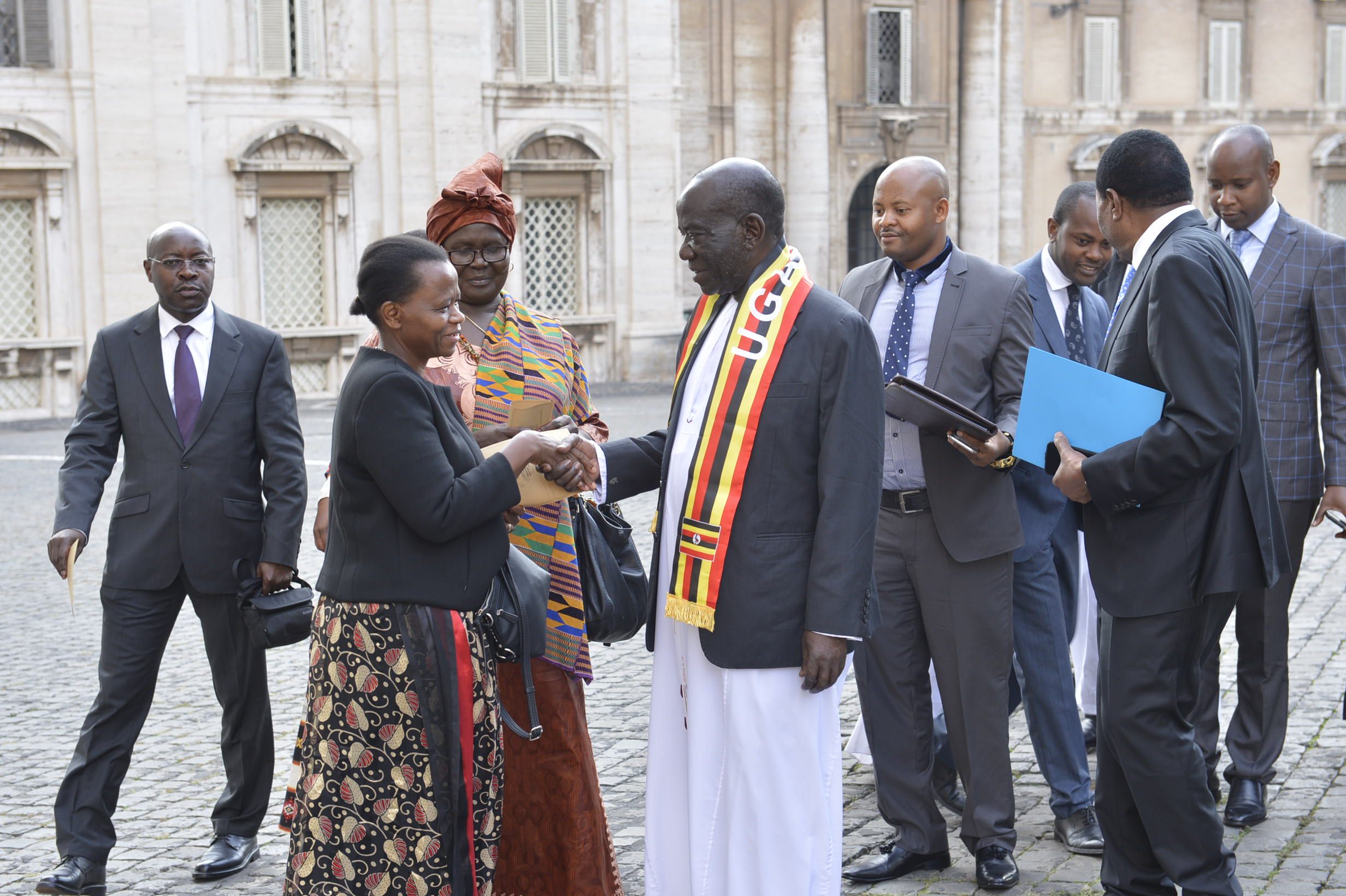
VATICAN – About 50 Ugandans, including Vice President Edward Kiwanuka Ssekandi, were among tens of thousands of believers in St Peter’s Square in the Vatican on Sunday as Pope Francis declared Pope Paul VI and six others saints in the Catholic Church.
Also in the Ugandan delegation in the congregation was Kampala Archbishop Cyprian Kizito Lwanga, Bishop Paul Ssemwogerere of Kasana-Luweero Diocese, Bishop Sabino Ocan Odoki, of Arua diocese and State House Comptroller Lucy Nakyobe.
Paul VI guided the church through the conclusion of the second Vatican council, which had started under his predecessor, and the implementation of its reforms. He was elected in 1963 and died in 1978.
In his homily, Pope Francis called Pope Paul “a prophet of an extroverted church” who opened it up to the world.
The Vatican calls Paul VI the “pope of modernity” for his influence on changes in “liturgy, seminary formation, theological study, and many other areas of ecclesiastical life.”
The other one canonized was Oscar Romero, the archbishop of San Salvador who was killed by a right-wing death squad on a church altar in 1980.

Pope Francis said, Romero “left the security of the world, even his own safety, in order to give his life according to the gospel — close to the poor and to his people.”
Romero, who had often denounced repression and poverty in his homilies, was shot dead on 24 March 1980, in a hospital chapel in San Salvador.
Romero’s murder was one of the most shocking in the long conflict between a series of US-backed governments and leftist rebels in which thousands were killed by rightwing and military death squads.
During the ceremony, Francis wore “the blood-stained rope belt that Romero wore when he was gunned down”.
The five other saints canonized on Sunday were Francesco Spinelli, born in Milan in 1853, founded a community of nuns, Vincenzo Roman, born near Naples in 1751, taught children and helped his community recover from an eruption of Mount Vesuvius and Maria Catherine Kasper, born in Germany in 1820, who created an organization that served the poor.
Others were Nazaria Ignazia of Saint Teresa of Jesus, born in Spain in 1889, founded a missionary group in Bolivia that served women and the poor, and Nuncio Sulprizio, born in Italy in 1817, died of bone tuberculosis at the age of 19 and was praised for his “heroic virtues.”





